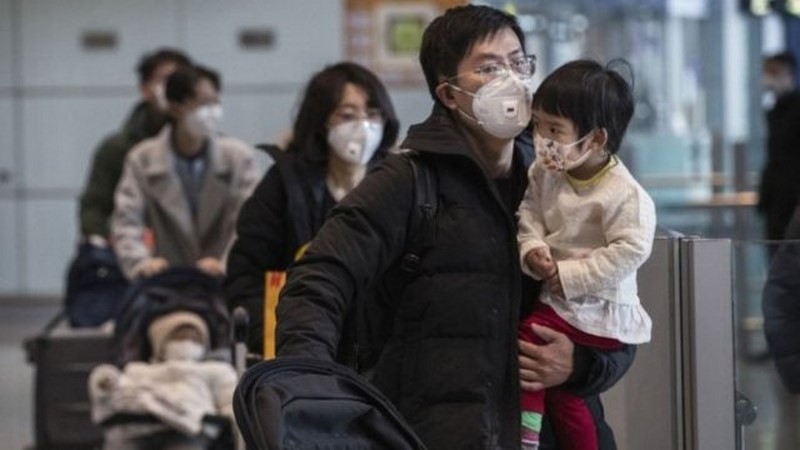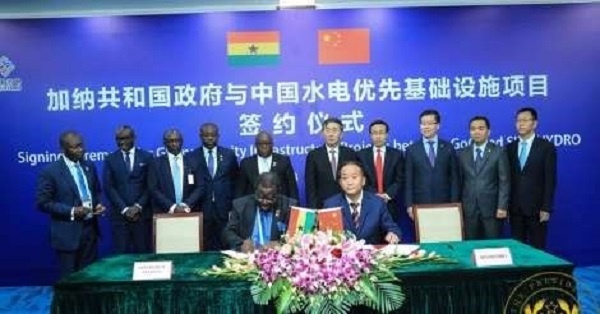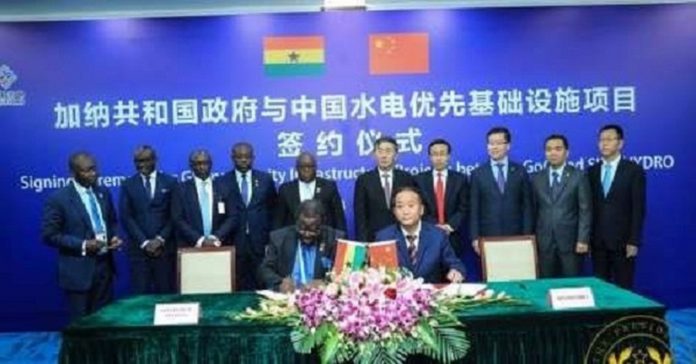Dubbed the Master Project Support Agreement, Ghana in 2018 signed a barter trade deal with Chinese state-owned company Sinohydro to ultimately solve Ghana’s infrastructural deficit.
China, per the stipulations in the signed agreement, is to undertake massive infrastructural projects across the breadth and length of Ghana in return for five per cent of Ghana’s 960 million metric tonnes bauxite reserves valued at $500 billion dollars.

The MPSA, is only a $2 billion dollar part of a $19 billion dollar loan facility Ghana is to benefit from the Chinese government.
The deal had been successfully carried out, government had ingeniously found a way to entirely fix the country’s infrastructural challenge. In April, 2019 China fulfilling its end of the bargain commenced operations by constructing the Tamale Interchange when all of sudden the novel coronavirus now scientifically named COVID-19 happened.
The outbreak of COVID-19 in China begs the question if the disease might restrict the Chinese government from carrying out the Sinohydro deal as well as handing out the extra $17 billion dollar loan facility to Ghana as it continues to struggle mitigate the adverse economic impacts of the virus.
China’s economic woes and its rippling impact on world economy
China, the world’s second largest economy ($14.3 trillion) has had its economy disrupted by the novel coronavirus scientifically named COVID-19.
The disruption of the Chinese economy by the virus has sent shocking waves through the world economy consequently affecting global trade through the mass shutdown of production and supply chains in China and closures of the Chinese ports.

This is because China has become the main supplier of finished products and so-called “intermediate” products used in countless industries across the world.
The disruption in global trade caused by the COVID-19 outbreak in China according to United Nations Conference on Trade and Development (UNCTAD), could result in a $50 billion dollar loss in global value chain.
China is bleeding and the world along with it, most especially African countries with strong economic relations with the Asian giant.
Impacts on African Countries
Economically, the effects of the virus outbreak in China have already begun to be felt by the continent as demand for raw materials such as oil, iron ore among others from African countries like Nigeria, Angola, Equitorial Guinea and my very own beloved country Ghana has greatly declined.
Coupled with the continent’s access to industrial components and manufactured goods from the Asian country has been hampered.
American rating agency, Fitch, following the outbreak, has predicted a downside risk for short term growth for Sub-Saharan African growth, particularly in Angola, South Africa, Nigeria and Ghana.
This seems to prove true as Ghana for instance is likely to have its oil revenue projection of US$ 1.15 billion halved as oil prices fell below its benchmark value of $58 to $30 on Monday, March 9, 2020, due to the oil price war between OPEC and OPEC+ led by Saudi Arabia and Russia respectively on the back of the outbreak of COVID-19.
The deal

China has one of the world’s strongest construction capabilities and is arguably said to be best placed to help Africa address its vast infrastructure gap. This, coupled with the good bilateral relations with China country saw Ghana engaged the Asian country in the Sinohydro barter trade deal.
Each of Ghana’s 16 regions under the $2 billion Master Project Support Agreement (MSPA) is to benefit from the construction of roads, hospitals, industrial parks, residential buildings, extension of electricity to rural communities among others.
The first phase of the project, costing $646.6 million begins with the construction of a 512 kilometres road stretch and two interchanges; the Tamale Interchange project and the PTC Roundabout Interchange, in Sekondi-Takoradi.

Phase 2 of the Sinohydro deal, will see an additional construction of 1,300 kilometres road stretch, three interchanges and 69 steel bridges at an estimated cost of $850 million dollars.
As part of the agreement, $10 billion dollar has been earmarked for expansion of Ghana’s mines, industrial and railway sectors with a 4,000 kilometres new railway routes to be constructed.
In addition, a bauxite processing factory is to be established by the Chinese government for the country.
But the question now begging for an answer is the readiness of the Chinese government to honour its end of the deal looking at how hard-hit China’s economy has been by COVID-19.
A force majeure?
Will the Asian economic giant continue to honour its obligations to Ghana by providing aid and grants or loans to us (Ghana) all for the sake of maintaining good bilateral relations or at the expense of its fast worsening economy handout monies to third world nations like Ghana?
Will COVID-19 serve as the force majeure to the trade deal between China and Ghana?
With occurrence of the novel COVID-19 virus in China and the fast contracting economy of China, it’s common sense for any nation like China a country that is the epicenter to suspend its $19 billion dollar loan facility to Ghana as it works to minimize the economic impacts of the virus.
Although hard-hit, for now its safe to say China might still be able to carry out its end of the bargain, but a more prolongment of the virus will have more pronounced adverse impact on China’s economy limiting their ability to finance the Sinohydro deal.
If China is affected by the virus for say the next six months or the rest of the year, it will deepen the decline in its economic activities possibly resulting in a recession. Rating agencies like fitch, S&P, and Moody’s have begun revising ratings for countries and the IMF plus the World Bank have also begun consultations to revise their growth projections.
If there is recession, it will take conservatively 3-5 years for China to recover and expand and be able to deliver on its promise to Ghana, a time frame incumbent President Akufo-Addo can’t afford as he exits the presidency in 2024 should he be given a second term.
And should opposition party the NDC which has strongly been against the whole idea since the beginning win power in 2024, it’s highly likely the deal will be reviewed.


